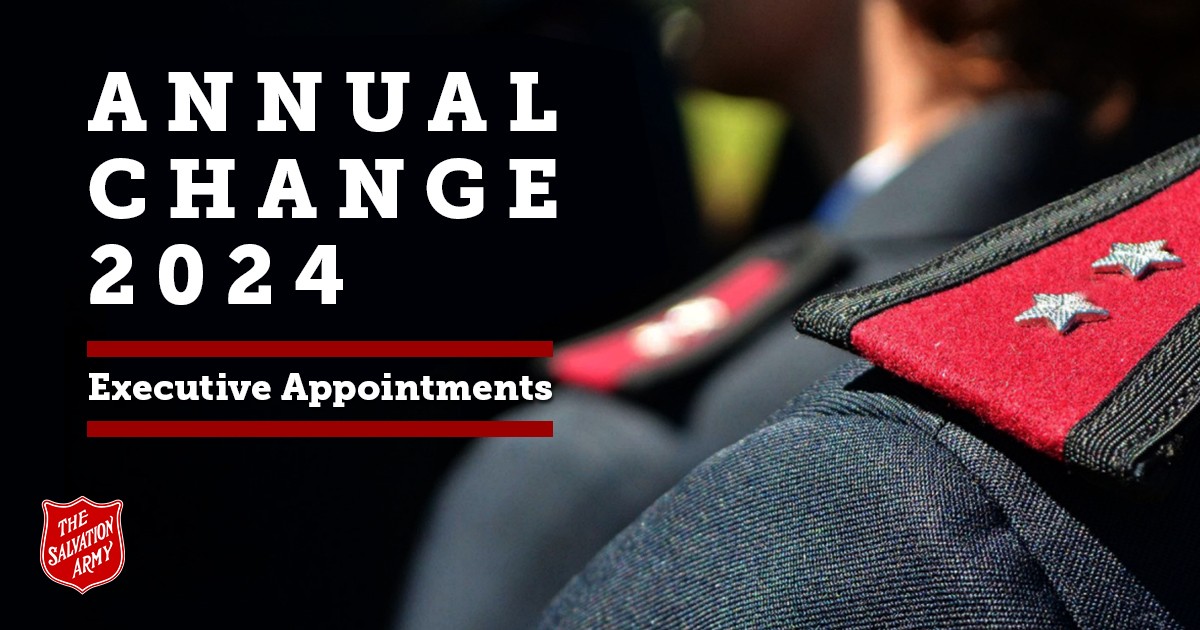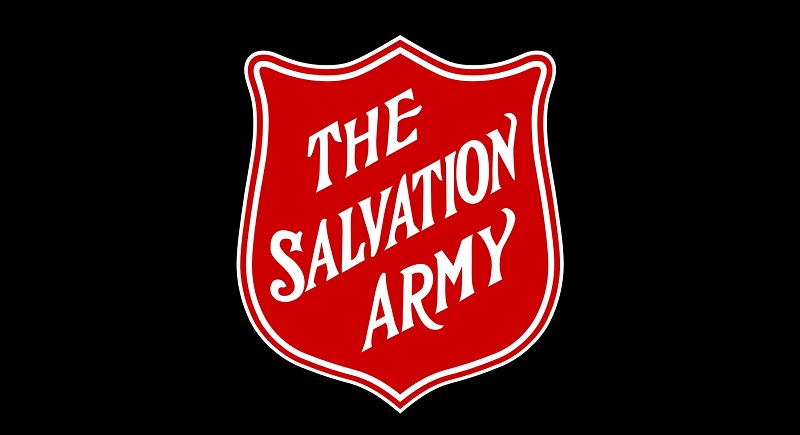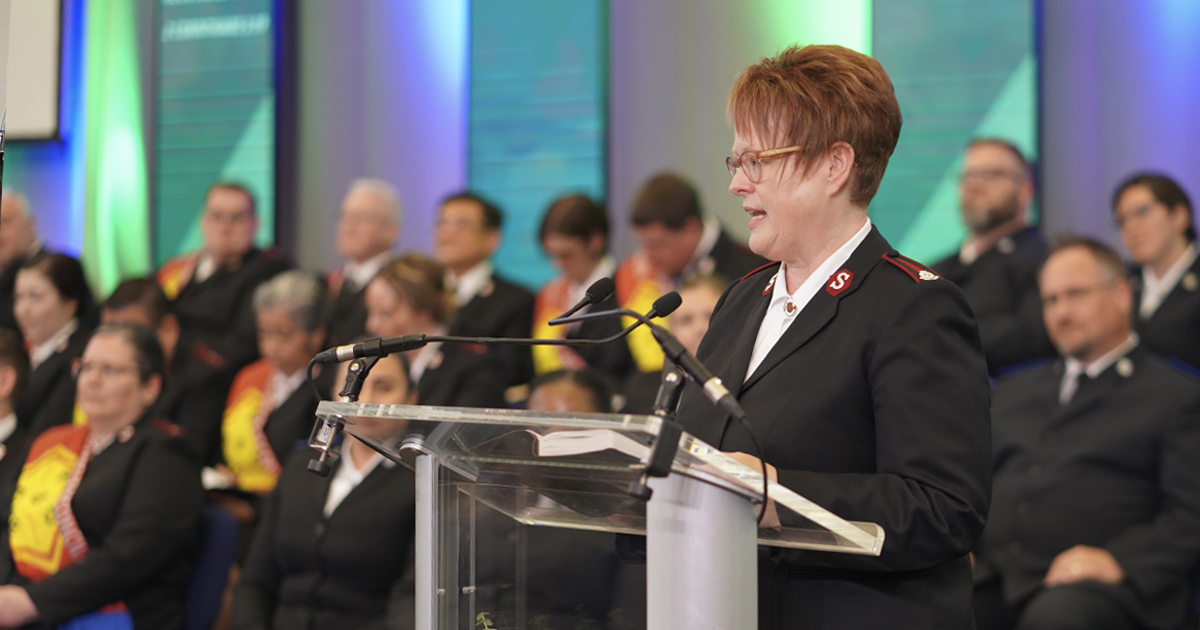 Born into the Saulteaux First Nation in Saskatchewan, Captain Shari Russell was not yet two years old when she and two of her siblings were forced to leave their family and their home on the reserve.
Born into the Saulteaux First Nation in Saskatchewan, Captain Shari Russell was not yet two years old when she and two of her siblings were forced to leave their family and their home on the reserve.
Captain Russell, territorial Aboriginal ministries consultant, is one of approximately 20,000 Aboriginal children who were fostered by child welfare between the 1960s and late 1980s, in what is known as the Sixties Scoop.
“In those days, being Native was very negative,” she says. “And so, as a Native person, you didn't think that you deserved any better. Decisions were made for you and you just had to deal with it. That was the way Native people were treated.”
Captain Russell spent four difficult years in foster care before she was adopted by a Salvation Army family.
“It took a while to adjust to being adopted—a lot of observing how to behave and act. I didn't want to be sent away again,” she remembers. “But I felt connected. Our family had very open arms.”
Captain Russell's adopted family was a mix of biological children, adopted children and children in foster care.
“Whether you were their own biological kids or not, it didn't seem to matter to my parents,” she says. “We were all accepted and treated with respect, and there was a real concern for us as individuals.”
Finding Faith
Adjusting to life in a new family also meant adjusting to life in the church, something Captain Russell had very little experience with.
“The whole prayer thing was weird to me at first because it seemed like they just closed their eyes and started talking to someone who wasn't there,” she laughs. “I wondered, What have I got myself into? But because it was safe and stable, I thought there must be something OK about it. Safety was the most immediate concern for me.”
This longing for stability kept Captain Russell committed to the corps, but for many years she felt there was a disconnect between her head and her heart.
“I did all the things I thought were expected of me to stay in the family,” she says. “I became a junior soldier, then a senior soldier. I played in the band. I could tell someone the plan of salvation, but I had the sense that it was for everyone except me.”
But when, at 17, a close friend of hers died suddenly, Captain Russell found herself in crisis and began to question the faith she had grown up with.
“I went on a retreat, looking for answers, and I had a supernatural experience with God, where he spoke words of assurance,” she remembers. “And I said, 'God, I do acknowledge your existence. And I don't know what this means, but whatever you want, I'll do.' ”
Following his lead took her to Winnipeg's Catherine Booth Bible College (now Booth University College), where she completed a BA in Christian education and met her husband, Captain Robert Russell. She had only intended to go for one year, but the class instruction drew her in.
“It challenged me to think through my faith, and it was freeing to discover that other people had the same questions I did,” she says. “I learned that you don't have to just follow blindly.”
Captain Russell followed her BA with an MA in Christian education from Providence Seminary. Feeling called to full-time ministry with The Salvation Army, the Russells entered training college in 1997 and were commissioned in 1999.
Aboriginal Liaison
The Russells' first two appointments took them to Toronto Harbour Light and the former College for Officer Training in St. John's, N.L.
Captain Russell says she never considered doing Aboriginal ministry until 2002, when she was reunited with her biological family.
“Meeting them helped me overcome the stereotypes I'd accepted about myself and my culture,” she says. “It was a very positive experience for me.”
While stationed in St. John's, the Russells' desire to do Aboriginal ministry grew, and was fulfilled at their next appointment to Weetamah Corps in Winnipeg, which has a large Aboriginal population.
During that appointment, Captain Shari Russell became a member of the board of the North American Institute for Indigenous Theological Studies (NAIITS), which is dedicated to developing Indigenous theologians.
“The contribution of theology from an Indigenous perspective is something that's missing from the Christian church,” she says. “When Canada and the United States were colonized, the Indigenous expression of spirituality was seen as pagan and so, in order to be a follower of Jesus, everything that you did as an Indigenous person had to be put away—dress, culture, language. The Indigenous perspective was removed from the greater expression of the Christian faith.”
NAIITS aims to encourage the Indigenous voice, and one way it does this is by holding a symposium every year that addresses topics of concern in Aboriginal ministry.
“We have discussions and forums on how we as Indigenous followers of Jesus can express who we are, fully and completely,” she explains.
Shortly after Captain Russell joined the board of NAIITS, she became the territorial Aboriginal ministries consultant. In this additional responsibility, she works with ministry units to develop best practices in Aboriginal ministry, shares information and resources (e.g. Bible study curriculum), and networks with other Aboriginal groups. Recently, she travelled to Wiarton, Ont., to help build connections between the corps and the Cape Croker band council.
Captain Russell also shares her perspective at the College for Officer Training in Winnipeg through courses such as human diversity, which focuses on communities, including the First Nations, who have experienced injustice.
Teaching cadets about Aboriginal ministry often means challenging the status quo.
“We need to rethink the way that we do missions in Aboriginal communities,” she says, “because it's always been through a service mentality, rather than a strength-based model.
“I think the way forward is to look backward and see the things that we've not done well. We need to recognize those things and admit our mistakes and then ask the Indigenous people, 'What are the steps forward? How can we walk alongside and empower you?' ”
Pointing to the traditional Indigenous symbol of the four-quadrant medicine wheel, Captain Russell says Aboriginal ministry must embrace four essential components—physical, mental, social and spiritual—in a holistic manner.
“Our mandate is not to colonize Aboriginal communities,” she says, “but to bring wholeness and healing.”









Comment
On Tuesday, February 19, 2013, Cathy Swain said:
Leave a Comment